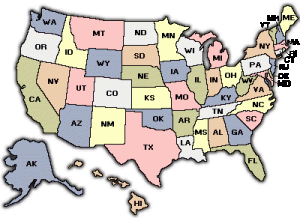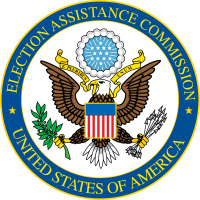THE HISPANIC BLOG BY JESSICA MARIE GUTIERREZ
LEAGUE OF UNITED LATIN AMERICAN CITIZENS FOUNDED ON
FEBRUARY 17TH: HAPPY BIRTHDAY LULAC
LULAC History – All for One and One for All
 The founding of the League of United Latin American Citizens (LULAC) on a cold, rainy day at Salon Obreros y Obreras, Corpus Christi, Texas, on February 17, 1929, marked an important milestone in the history of Hispanic American people in the United States, as LULAC has since evolved into one of the premiere organizations representing the civil rights of Hispanic Americans.
The founding of the League of United Latin American Citizens (LULAC) on a cold, rainy day at Salon Obreros y Obreras, Corpus Christi, Texas, on February 17, 1929, marked an important milestone in the history of Hispanic American people in the United States, as LULAC has since evolved into one of the premiere organizations representing the civil rights of Hispanic Americans.
The League sprung from the rise of a Texan-Mexican middle class and resistance to racial discrimination. The strength of the organization has historically been in Texas, although it now enjoys widespread support across the country.
LULAC is a multi-issue organization because its founders were confronted with a plethora of the challenges: addressing political disfranchisement, racial segregation, and racial discrimination that plagued Latinos through the early twentieth century. Since its inception, LULAC has responded to deepening issues in American society affecting Hispanic Americans, including racism, lack of political representation and the growing Hispanic vote, the exclusion of Hispanics from juries, and the segregation of public schools, housing, and public accommodations. And though the organization would criticize American society for discriminating against Hispanic Americans, in particular, it encouraged reform rather than an attempt to restructure the political and economic construct of the country.
 LULAC is set apart from its peer organizations in the Hispanic community by its political ideology. The founders of LULAC respected the precepts on which the United States was established, including the writings of the country’s founding fathers, and in an effort to imbue LULAC with the same spirit of purpose and opportunity that is the foundation of American democracy and free enterprise, they praised the nation in well-crafted written statements and speeches. This deference toward the American way of life was done largely, in the beginning, to placate the American public’s suspicion of the organization’s motives and to satisfy the personal beliefs and political preferences of the League’s membership. Officers and members of LULAC were required to take an oath swearing their loyalty to the government of the United States and their support of its Constitution and laws. The organization would adopt “America” as its official song, English as its official language, and “George Washington’s Prayer” as its official prayer. The League’s constitution was modeled after the U.S. Constitution.
LULAC is set apart from its peer organizations in the Hispanic community by its political ideology. The founders of LULAC respected the precepts on which the United States was established, including the writings of the country’s founding fathers, and in an effort to imbue LULAC with the same spirit of purpose and opportunity that is the foundation of American democracy and free enterprise, they praised the nation in well-crafted written statements and speeches. This deference toward the American way of life was done largely, in the beginning, to placate the American public’s suspicion of the organization’s motives and to satisfy the personal beliefs and political preferences of the League’s membership. Officers and members of LULAC were required to take an oath swearing their loyalty to the government of the United States and their support of its Constitution and laws. The organization would adopt “America” as its official song, English as its official language, and “George Washington’s Prayer” as its official prayer. The League’s constitution was modeled after the U.S. Constitution.
LULAC’s early activists fought racism in a country that clearly rejected Mexican American people and culture. But the League’s members held on to their pride and sought to retain their Latino heritage while also advocating a grasp of the English language, loyalty to the United States, and participation in American civic and social activities, becoming advocates of bilingualism and biculturalism, as long as it was understood that Hispanic Americans’ primary loyalty was to the United States and its institutions.
 The founders of LULAC were economic conservatives who viewed racial discrimination, not class domination, as the primary cause of Mexican Americans’ problems.
The founders of LULAC were economic conservatives who viewed racial discrimination, not class domination, as the primary cause of Mexican Americans’ problems.
At the beginning of World War II, many of the League’s councils ceased to exist because their members volunteered or were drafted into the armed services. By the end of the war, LULAC councils were revived with the return of Hispanic veterans who had constituted the core of activists destined to renew the fight for equal civil rights. For a period of fifteen years post–World War II, the organization conducted a series of lawsuits, petitioned local governments, and mobilized the Latino vote to challenge discriminatory practices in America’s Southwest. Along with another organization, the American GI Forum, LULAC was at the forefront of civil rights for Hispanic Americans in the post–World War II years.
The League remains, to this day, unique from an organizational perspective, largely because it had two notable mobilization phases, the first in 1929 when LULAC was established, and the second in 1945 after World War II. While World War II decidedly interrupted the group’s work, and most of its councils disbanded, by war’s end Hispanic veterans saw the vast opportunities in a booming United States economy and wanted to participate in the American dream. The period from the end of the war through the late 1950s was a long period of political activism. LULAC’s crusade for civil rights moved forward in concert with a libertarian ethic and a strident antisocialist stand, arguing that discrimination provided an opportunity for propaganda to divide and decimate the country.7 Beginning in the late 1950s LULAC created a series of landmark programs for the Latino community that have themselves become important institutions for the advancement of Hispanics. These include the LULAC’s Little Schools of the 400 created in 1957 to teach basic English words to Hispanic preschoolers. This innovating program was the model used by President Johnson in the creation of the federal Headstart program.
 In the 1960s LULAC councils built more than two dozen housing projects to provide affordable housing to low income families. LULAC and the American GI Forum created SER-Jobs for Progress, the premiere Hispanic employment training program in 1966. Today SER provides employment and training services through more than forty-three employment centers located throughout the United States and Puerto Rico. In 1968 LULAC created the Mexican American Legal Defense and Education Fund to provide legal services to the Hispanic community. LULAC’s flag ship educational program, the LULAC National Educational Service Centers, was created in 1973 and now provides counseling services to more than 20,000 Hispanic students each year at seventeen regional centers located throughout the United States and Puerto Rico.
In the 1960s LULAC councils built more than two dozen housing projects to provide affordable housing to low income families. LULAC and the American GI Forum created SER-Jobs for Progress, the premiere Hispanic employment training program in 1966. Today SER provides employment and training services through more than forty-three employment centers located throughout the United States and Puerto Rico. In 1968 LULAC created the Mexican American Legal Defense and Education Fund to provide legal services to the Hispanic community. LULAC’s flag ship educational program, the LULAC National Educational Service Centers, was created in 1973 and now provides counseling services to more than 20,000 Hispanic students each year at seventeen regional centers located throughout the United States and Puerto Rico.
In the last decade, LULAC created the LULAC Corporate Alliance, an advisory board of Fortune 500 companies, to foster stronger partnerships between Corporate America and the Hispanic community and the LULAC Institute to develop and support community-service programs for its volunteer councils.
LULAC has grown dramatically from the small, tightly associated band of South Texas individuals who joined together in 1929 to form the organization. Now a nationwide organization headquartered in Washington, D.C., with more than 700 LULAC councils operating throughout the United States and Puerto Rico, LULAC represents and serves Latinos from all nationalities and backgrounds. LULAC councils award millions of dollars in scholarships to Hispanic students each year, organize citizenship and voter registration drives, conduct thousands of volunteer-based service programs for disadvantaged Latinos, and actively empower the Hispanic community at the local, state and national levels. LULAC, and the family of organizations it helped create, is a tremendous force for advancing the education, employment, housing, health, political empowerment, and civil rights of Hispanic Americans. With a vibrant and growing membership, unparalleled grassroots outreach, innovative model programs, and dynamic leadership, LULAC’s best days are still to come.
Read More: http://www.lulac.net/about/history.html
SUBSCRIBE to The Hispanic Blog and stay on top of the latest Latino news, politics and entertainment!
Don’t be shy SUBSCRIBE – COMMENT – LIKE ME -CIRCLE ME AND FOLLOW ME
If you have any questions, concerns or simply would like to get a quote on my Marketing, Public Relations, Social Media and/or Events services, please feel free to contact me at thehispanicblog@gmail.com.
God Bless and may you have a fabulous day!
powered by Influential Access – “Transforming the Ordinary to EXTRAordinary!” – CEO – Jessica Marie Gutierrez – Creator of The Hispanic Blog #thehispanicblog






Leave a comment